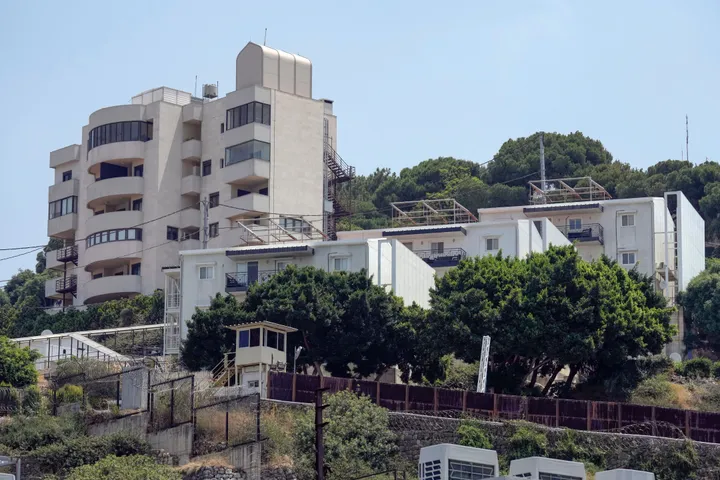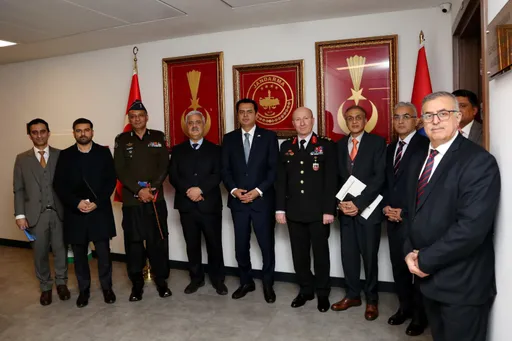Skopje - “Really it is strange to speak or to negotiate on your name,” Gordana Siljanovska tells TRT World as we walk through Fontana Gradski Park in central Skopje.
A constitutional law professor, Siljanovska is also the presidential candidate for the center-right VMRO-DPMNE coalition, the largest party in North Macedonia’s parliament, although not the governing party. And if she wins, the countries first female head of state.
North Macedonians will head this weekend to the polls to cast their vote in the country's first round of presidential elections and the first test both parties will face since the controversial agreement reached with Greece to change the country’s name from Macedonia to North Macedonia.
The Prespa Agreement, was put to a referendum in September of last year and while the vote passed, it did so through a low 37 percent turnout, after VMRO-DPMNE boycotted the vote.
A 50 percent turnout was required to make the vote valid, but Prime Minister Zoran Zaev moved forward with US and EU backing.
When asked for this interview how to refer to the country, Siljanovska replies adamantly “of course Macedonia”.
It doesn’t take much time for the constitutional professor to reel her objections to the name change: “We professors of constitutional law and also professors of international law know that the name, the anthem, the coat of arms, the flag are included in so-called principles of self-determination.
“But living in the world based on might and not on right, with Macedonia as David and Greece as Goliath...at the end of all of this is the Prespa Agreement.”
Gordana Siljanovska is an extensively published Professor, and when chosen as a presidential candidate the aim was to reach out to voters that had become disaffected under the previous VMRO-DPMNE Prime Minister, Nikola Gruevski.
Gruevski fled North Macedonia to Hungary, which granted him political asylum after he was sentenced to two years in prison for abuse of power dating back to 2012.
His party claims that the charges against him are politically motivated.
What's in a name?
Many of those against the name change believe that the country was coaxed by the international community to accept the deal in exchange for NATO and EU membership, both prospects previously blocked by Greece.
“You know it's part of my identity...Can you imagine for 75 years the name of my state was Macedonia. Imagine now an old lady at the age of 75 years oppressed to change her name and then the explanation is ‘no, there is no problem, you have to change the name because this is the precondition to enter NATO and the EU’,” says Siljanovska.
The now ratified Prespa Agreement envisaged that the country named Macedonia would also be required to change its textbooks, passports, street names, signs on statues and much more to North Macedonia - and many are unhappy about that.
Prime Minister Zoran Zaev, from the left wing SDSM party, is one of the main architects of the Prespa Agreement and is close to Western countries. With the support of smaller Albanian parties, he has managed to cobble together a broad, if shaky, governing coalition.
SDSM’s presidential candidate Stevo Pendarovski is leading the country’s accession to NATO and in 2014 ran for president, losing to the conservative incumbent and VMRO-DPMNE candidate Gjorge Ivanov.
This time, he may be able to count on a broader coalition to get him over the finishing line.
The opposing sides’ perspective on the Prespa Agreement is reflected in campaign slogans. Pendarovski’s slogan “Forward Together” aims to put the name debate to rest whereas Siljanovska’s “Justice for Macedonia – the Fatherland Calls”, leaves no doubt that they will refuse to let the issue die down.
In order to attract the Albanian vote, Zaev approved a raft of legislation that benefits the Albanian community, estimated at between 20-25 percent of the total population, in particular around language rights.
“The procedure was against the constitution and against the rules of procedure in parliament,” says Siljanovska of the language reform package.
“To establish...two official languages with the same power I think is not a good solution. Macedonia is not and must not be a so-called bi-national state, it is a multicultural society and in a multicultural society we need badly an instrument for communication, that is the Macedonian language,” she adds.
Looking to the future
Siljanovska and the VMRO-DPMNE coalition have taken a political position that they say will not compete with SDSM in delivering these sorts of concessions.
Whether this strategy works may very well depend on whether SDSM is portrayed as a party that does not have the interests of the Macedonian people at its core.
Yet, polls show that the people of what is now called Macedonia want a resolution to the 30-year-old name dispute - and here Siljanovska has an interesting compromise to name-change hardliners.
“We could look for a solution but only for international use not for national use - because it directly interferes in the internal matters of Macedonia,” Silyanovska adds.
Hardliners in Greece believe that the current agreement is not strong enough, so how such a watering down would work in practice is difficult to determine.
As voters head to the polls and the country’s name still generates heated debate, there is a concern in both camps about whether the debate is leading to voter fatigue.
People are resentful of the deal but they also just want to move on - however, there is no candidate that can capture that vote.























